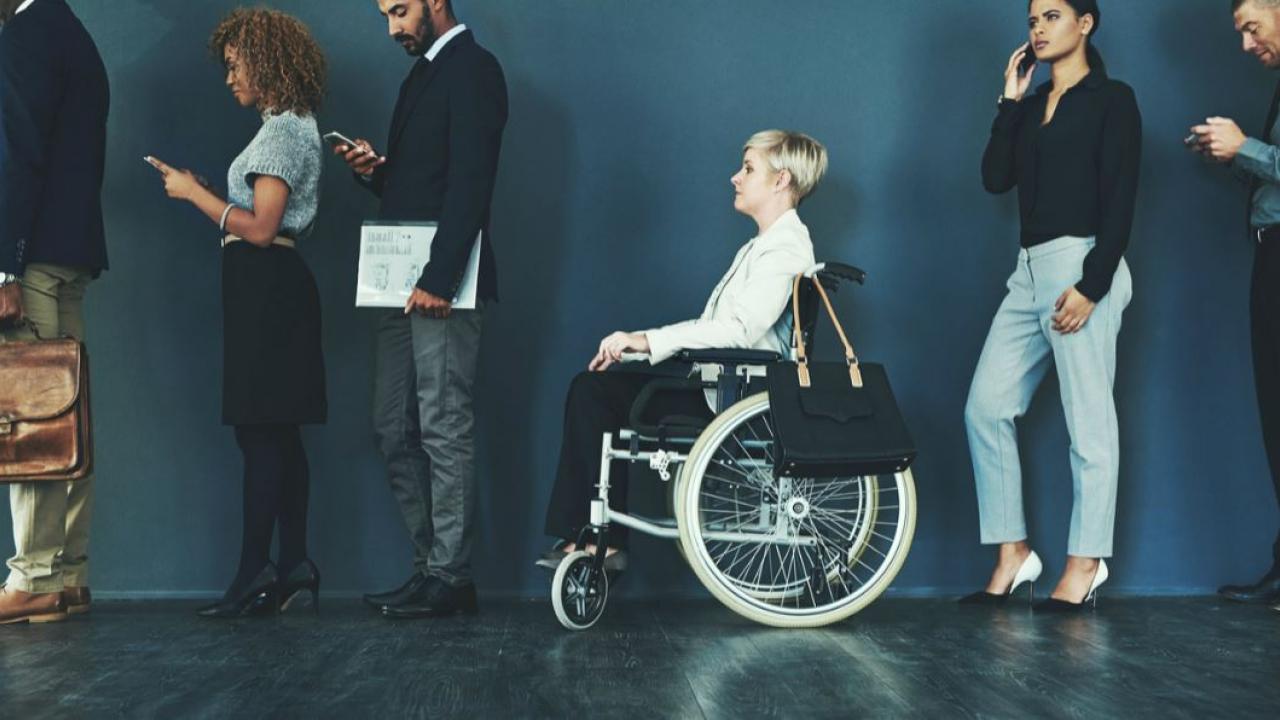Three reasons why you should address your disability in a job interview
May 26, 2019

I have what some may refer to as an ‘invisible disability’. At first glance, most people will confuse my ocular-cutaneous albinism for ‘being very blonde’, and may not even notice that I have low vision and that I’m legally blind. Today, one in five people live with a disability, ranging from blindness, to Cerebral Palsy to Asperger’s. Some being more noticeable, some are more discreet or ‘invisible’, while others manifest themselves in certain situations. So, how do those of us with a disability address our uniqueness during a job interview? How do we remain competitive against the other 80% of the applicants?
I experience this early in my career as scientist. When I graduated with my bachelor’s degree in Chemistry, I had three research internships and a cop-op under my belt- and I was ready to enter the market. Soon after graduating, I landed a position as a research chemist with the government, after a 3-month long application period involving several phone interviews and tests. Soon after arriving and being ‘on the job’ for a week, I met my Boss, the Principal Investigator or PI. This guy, being an MD, Ph.D. immediately recognized my albinism and the first thing he said: “Boy, I wish I would have seen you in person before we brought you on.” Wait…it get even better. He then followed it up with “If I would have known about your condition, I’ve would have never hired you…Though you were the only candidate that we found that could fill this position.”
Confronted with this and obviously being very ‘green’ in my career, I decided to talk about my experience working at the bench with my low vision and what I’ve accomplished. I reminded him why they choose me above all the other candidates. That conversation changed my like and how I would address my ‘disability’ with future employers.
So when and how should we address our unique situation during the interview? It’s all about ‘timing’ and taking a proactive approach. Employers are looking for talented individuals who are confident in their abilities, have the skills and experience to do the job and are fit with company culture. Here is how you can set yourself up for success:
Be the one to address your disability at the appropriate time
You got to the interview room because of your qualifications. Chances are that your interviewer wants to ask questions about your disability. But the ADA prohibits them from doing so. By addressing and acknowledging it, you remove the elephant from the room, any awkwardness and you project confidence- that you’re at ease with your uniqueness. By addressing your disability ‘head-on’, you allow the focus to on you as the best candidate for the position.
You exude confidence in your ability to succeed
Remember that you control the narrative and you want to be remembered for your confidence and directness. Talk about how your disability created a unique character strength, unparalleled to other candidates, which will allow you to add value to the team and succeed. The effect is that you’re linking your disability to a strong character trait that sets you apart from the competition.
Make an immediate connection with your interviewer
Remember that your objective during the interview is to avoid getting lumped in with the rest of the other candidates. Personally, I prefer to open up about my disability because it allows me to connect with the person in the room. It makes the conversation meaningful and it elevates it above the dry business-conversation. Addressing your disability demonstrates honesty.
For those of us with an ‘invisible’ disability or one that is not as noticeable, such as in my case. I will try to work it into the conversation. I use some of the popular questions asked during the interview as an opportunity to segue into my disability. For example, “What are your strengths?”, “Why are you the best person for the job?” and other question like that are perfect jumping-off points for you to lead the conversation about your disability. Remember to bring up positive connotations about your disability, i.e. focusing on how it shapes your character, personality and your approach to life’s challenges etc. Include an anecdote about how it played in your professional career.
Most importantly, once you’ve mentioned it – move on. Don’t dwell on your disability and avoid it informing the entire meeting. Remember that the focus of the interview is about showing your experience and qualifications that make you the best person for the job.
